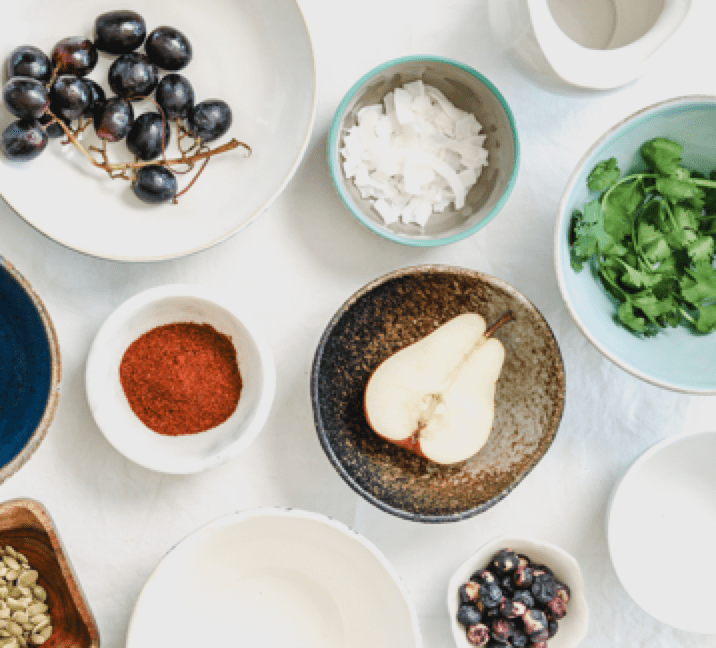Join the Plastic-Free Period Movement

How It Works
While menstruation is a natural part of life, the conventional products that many of us grew up with are far from natural. More women need to know that there are natural period options, especially since there are currently no regulations over what feminine hygiene companies can put into their products and, therefore, consumers do not know what chemicals they are putting into their body. Thankfully there are non-toxic, sustainable alternatives:
ORGANIC PADS & TAMPONS
Companies such as NatraCare provide natural period protection, without the plastic. These biodegradable products are made from plant-based, breathable materials and are naturally plastic-free, chlorine-free and perfume-free. But even natural pads and tampons should not be flushed - they should be disposed. These are the easiest alternative as a non-reusable option.
PERIOD-PROOF PANTIES
Technology has come a long way, and period-proof panties are now a thing. THINX makes a line of washable, reusable undies which absorb your period and are a more sustainable solution than single-use disposable products. Depending on your flow (light, medium, heavy), THINX can replace pads, tampons, liners, and cups, or be worn with tampons and cups for extra protection. These panties hold up to 2 tampons’ worth — yet they look and feel like regular underwear. They’re moisture-wicking and are made from a breathable cotton which draws away wetness & dries fast, they also neutralize any natural smell for all-day freshness, they’re not bulky and they help to keep your clothes, sheets & everything else, stain-free. They’re available in smaller sizes for newbie menstruators too!
MENSTRUAL CUPS
Menstrual cups are a great option for any menstruating human looking to have a more sustainable, economical and healthier period. These cups save the planet from millions of disposable period products ending up in the landfill.
REUSABLE PADS
Disposable pads & tampons cost almost twice as much as reusables, especially since you have to keep buying them month after month. Reusable products are typically made with more natural and organic materials that require a different routine to be highly absorbent, breathable, and leakproof.
Choosing to use natural menstrual pads or cups also works to put you back in touch with your menstrual cycle or help you redefine the experience for yourself, on your own terms, which can lead to increased self-knowledge, acceptance, and even empowerment. So as a fellow earth lover and female , I challenge you to take part in the plastic-free period
What You’ll Need
- Organic Pads + Tampons
- Reusable Pads
- Menstrual Cup
Difficulty
nor hard Somewhat
challenging Very
challenging
Story
Around 40% of plastics are discarded after just one use. The amount of time, resources, and energy go into producing, exporting and importing these products just doesn’t add up - especially since plastics are made to last forever. The global case against single-use plastics and the negative impact they have on our environment, and health, is ever-growing. From straws, to plastic bottles, bags, coffee cups, and menstrual products? Yes. You read that right, our conventional period products are also adding to the plastic epidemic, they are the fifth most common plastic polluting the ocean, and they may be made worse by incorrect disposal.
If you look back on the history of marketing for femine hygeine products, these campaigns were fuelled by period shaming, and these products were initially created and marketed by humans who don’t even menstruate. Conventional pads and tampons are both wasteful and impactful on on the environment and our health. A conventional pad actually contains around 90% plastic, and according to City to Sea this is equivalent to four plastic grocery bags. Tampons have plastic in them too, in the form of both the applicator and the string.
These conventional products are not biodegradable, and they either end up in landfills, or they get flushed and end up on beaches, polluting our oceans. The average person who menstruates will throw away up to 440 lbs of menstrual products in their lifetime and a years worth of a typical menstrual product leaves a carbon footprint of 5.3 kg CO2 equivalent.
In addition to being toxic to our environment, these products can also be dangerous for our health too. Conventional products have odour neutralizers, dyes, pesticides, and fragrances, which have an undisclosed mixture of chemicals and endocrine disruptors which have been linked to allergies, rashes, respiratory distress, cancer, dryness, and infertility. Conventional menstrual products also contain GMOs, so if we are concerned about ingesting GMO foods, we should be equally concerned about inserting a GMO tampon. The vaginal wall is so permeable, which would allow toxins like pesticides and GMO proteins to directly access our bloodstream.
Original posting: https://holisticole.com/blog/plastic-free-period





